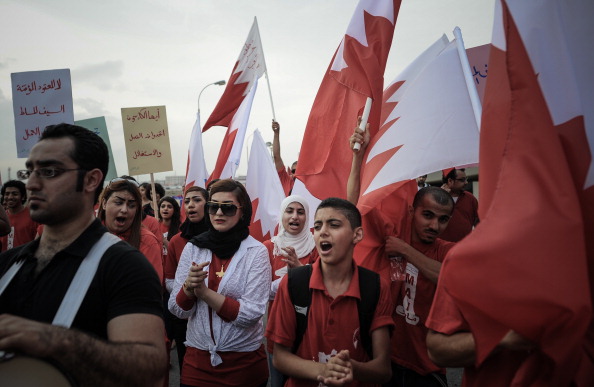Bahrain Needs To Cut Public Debt After 2012 Spending Boost – IMF
The Gulf state upped its original 2012 expenditure plan by nearly 19 per cent in September 2011.

Bahrain, which last year boosted state spending to quell political unrest, urgently needs to reform its economy to stop its debt burden becoming unsustainable, the International Monetary Fund (IMF) said.
Bahrain upped its original 2012 expenditure plan by nearly 19 per cent in September 2011 after protesters inspired by the Arab Spring revolts took to the streets of the capital Manama to demand political reforms.
As unrest continues to simmer among the country’s majority Shi’ite population, the Fund said more belt-tightening was needed in addition to the almost six per cent cut in spending planned for 2013.
“Overall fiscal deficits are projected to widen and public debt is estimated to continue on a rising path that could become unsustainable, reaching 61 per cent of GDP as early as 2018,” it said in a report published late on Wednesday following regular consultations with the kingdom.
“There is therefore an urgent need for a gradual fiscal consolidation over the next three two-year budget cycles, of about 7.7 per cent of GDP.
“That should stabilise government debt at 40 per cent of GDP over the medium term but needs to be accompanied by reforms to the subsidy-rich economy.”
Authorities should also look to “contain public-sector wage increases, increase non-oil revenues, rationalise capital expenditures, and place the pension fund on a sustainable path,” the IMF said.
The small non-OPEC oil exporter registered a narrower-than-expected budget gap of 2.6 per cent of GDP in 2012, but the IMF said the fiscal situation still posed sustainability concerns.
“Halting the fiscal deterioration and putting government debt on a sustainable path will depend critically on the adoption of measures that have high fiscal saving potential,” the Fund said.
Bahrain’s fiscal break-even oil price reached critical levels of $115 per barrel in 2012, making the small island vulnerable to a sustained decline in oil prices, the IMF said, adding it supported the government’s plan to establish a debt management office at the finance ministry.
Bahrain relies on output from the Abu Safa oilfield shared with Saudi Arabia – which supports Bahrain’s Sunni rulers politically – for some 70 per cent of its budget revenue. Analysts have said Manama’s share could be raised if its budget runs into trouble.
The Fund expects Bahrain’s fiscal shortfall to widen to as high as 8.6 per cent of GDP in 2018 from 4.2 per cent forecast this year. It sees public debt at 35.7 per cent of GDP in 2013.
